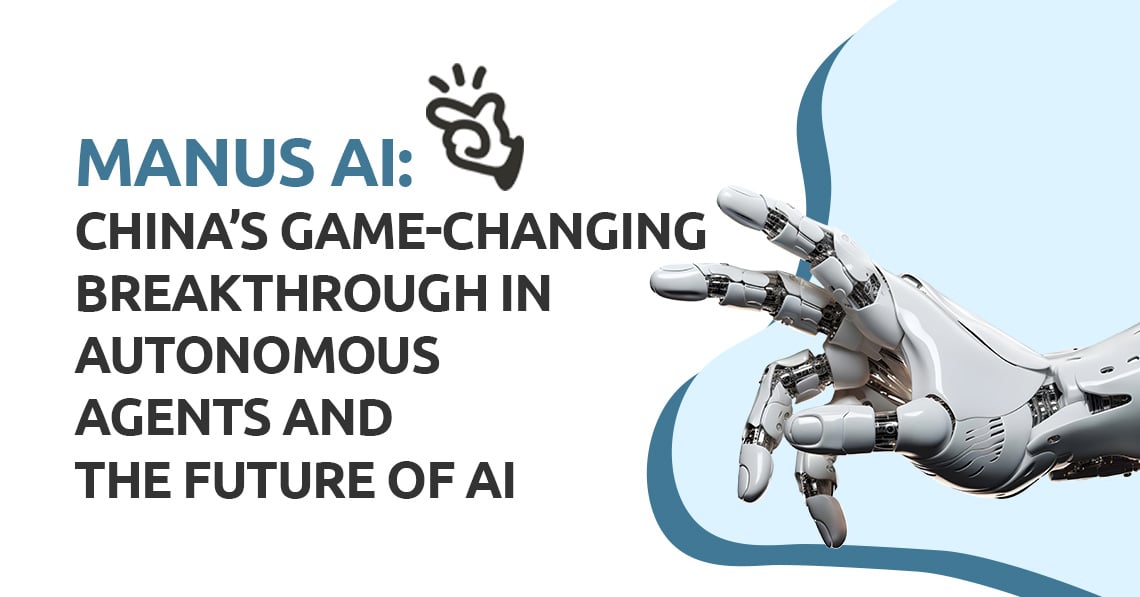Revolutionary Advances in Autonomous Agents and the Future of AI in China

The Rise of Manus AI: A New Age of Autonomous Intelligence
On March 6, 2025, Butterfly Effect, a Chinese startup, introduced Manus, an innovative fully autonomous AI agent that is already creating excitement within the AI community. Unlike existing generative models such as ChatGPT, Perplexity, or DeepSeek, Manus is designed to think independently, execute tasks, and make decisions with minimal human intervention. This advancement marks a significant shift in artificial intelligence capabilities, paving the way for AI that can manage complex operations on its own.
Manus AI: A Game Changer in Task Execution
How Manus Differs from Conventional AI
What distinguishes Manus from traditional AI systems lies in its ability to perform intricate tasks without needing ongoing human guidance. While models like ChatGPT utilize a single large language model (LLM) for user prompts, Manus boasts a more sophisticated multi-agent structure that enhances its independence and capabilities.
Manus employs a blend of LLMs, including contributions from companies like Anthropic and Alibaba, which help it interpret user requests. The system generates plans and executes them using automation tools, such as web scrapers and data processors. This unique design enables Manus to go beyond generating text; it can act on that information in real-world scenarios, from creating websites to automating personal tasks.
The heart of Manus’s system is its central "executor" agent, which coordinates multiple specialized sub-agents that handle distinct tasks, such as web scraping or data analysis. This architecture allows Manus to break complex workflows into smaller, manageable tasks that it can carry out autonomously. Moreover, its cloud-based platform ensures tasks are completed continuously, regardless of user interaction, making it suitable for ongoing operational needs.
Real-World Applications of Manus AI
Manus AI is not merely a theoretical concept; it is already being utilized to automate and streamline complex processes across various industries. Its autonomous nature allows businesses and individuals to offload various time-consuming tasks, enabling them to focus on more strategic activities.
Notable Use Cases for Manus AI
Travel Planning
Manus can autonomously compile and analyze travel-related data to create personalized itineraries tailored to users’ preferences. It evaluates numerous factors, including weather and rental availability, to generate realistic plans.Financial Analysis
In the finance sector, Manus exemplifies its capabilities by analyzing stock data, such as that of Tesla. It produces visual dashboards that highlight significant trends and insights that typically require a financial analyst’s expertise.Supplier Sourcing in B2B
Another compelling application is in B2B supplier sourcing. Manus can navigate extensive supplier networks to identify the best matches based on a company’s specific needs, simplifying the supplier selection process.- AI Market Research in Clothing
Manus can conduct thorough market research on AI-driven products in the clothing industry, giving brands valuable competitive insights and recommendations without human oversight.
These practical examples of Manus reflect its capacity to handle complex, time-consuming tasks independently, showcasing a significant evolution in how AI can function beyond simple command response.
Challenges and Considerations for Manus AI
While Manus AI exhibits groundbreaking potential, it faces several challenges as it progresses towards widespread deployment. Early users have reported technical issues, such as the system getting caught in loops while executing tasks, which underscores the complexity of developing reliable autonomous AI that operates efficiently in unpredictable environments.
Some users have also noted that Manus may misinterpret tasks or make incorrect assumptions, issues that become apparent to human operators but are harder to identify autonomously.
Ethical and Security Concerns
Ethical concerns also arise with Manus’s operations, as its workings often remain opaque to users, leading to potential trust issues in sensitive industry settings. Moreover, the ability of Manus to scrape the web autonomously raises security questions about privacy and data protection, particularly regarding sensitive information.
While Manus AI is on the brink of redefining industry standards, its full-scale deployment is contingent upon addressing these technical, ethical, and security-related issues. Users eagerly anticipate its release, with a waitlist exceeding two million individuals, indicating a strong interest in exploring its capabilities.
The Future of Autonomous AI
The emergence of Manus AI represents a transformative development in the landscape of artificial intelligence. By combining autonomous decision-making with practical task execution, Manus is paving the way for the next generation of AI systems capable of operating with minimal human oversight. As this technology progresses, it holds the potential to reshape various sectors, influencing how we work and interact with machines. The timeline for this shift remains uncertain, but it is clear that autonomous AI is poised to play an increasingly significant role in our future.





